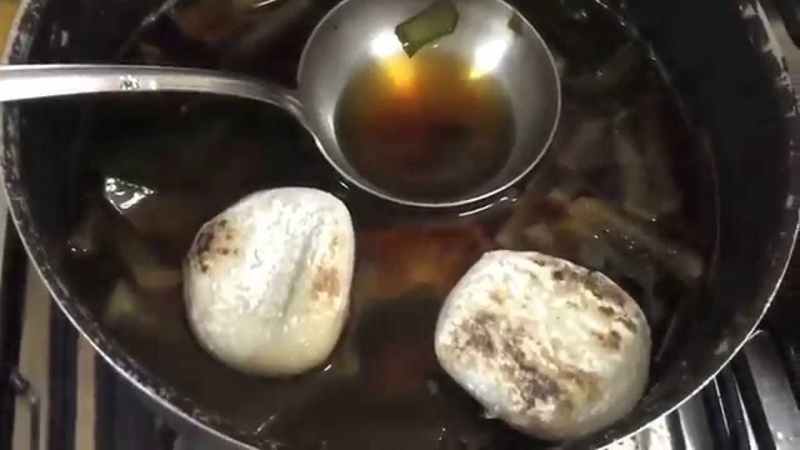“She’s making soup!”
That was my mother’s and my aunts’ hint to us children, that it was time for us to get out of my grandmother's kitchen.
For several days, she had been dedicating herself to the preparation of this very special broth, the ozoni, so that, according to Japanese tradition, it would bring us good luck in the new year about to begin.
My grandfather, her husband, didn’t care much for any of that. My other grandparents, on my father’s side, cared even less. They were already following Western traditions.
Away from the adults, my older cousins complained that they didn’t want to eat ozoni that year. They said they didn’t like octopus and that the mochi, found in the broth, was all but tasteless.
Personally, the name of this soup, ozoni, has always reminded me of a man who every once in a while played soccer with my friends in the little field close to home. His name was Azoni.
Dark and chubby, Azoni loved to take corner kicks during the games. But the thing he loved the most, no kidding, was the fact that I, the grandson of Japanese nationals, played soccer with them. So he never failed to tease me. “No way, I don’t want the Japanees on my team! Japanees don’t know how to play ball!” he would say with a laugh.
Until the day when, in the middle of the game, I took the ball and kicked it between his legs. But before I finished the move, he lifted me up and ran across the field, with me hanging on one shoulder.
He was screaming that I was a badly behaved Japanese and that there was no way I was going to dummy my way past him.
I went on screaming loudly and nonstop for him to let me go. My fellow players chased after us, laughing and trying to hit us with the ball.
And suddenly, on January 1, at lunch time, it was announced that the soup was ready.
My grandmother looked tired but happy, mixing the broth and filling the bowls that had been placed in a row on the table.
As each one of us, her grandchildren, got our portion, she would tell us something very special, in Japanese. At her side, one of my uncles, drinking beer, translated, telling us that she was just wishing us lots of luck and lots of money in our pockets.
I remember that we became silent, blowing on our bowls. After a few spoonfuls, we would flee to the yard so we wouldn’t have to eat any more soup.
I don’t know whether it's memory or imagination, but in these moments it seems to me that my grandmother would remain in the kitchen, watching us with eyes closed tight, seeing everything. Incredulous at the fact that she was witnessing the downfall of a centuries-old tradition right there, in her hands.
But little does she know that, more than twenty years later, I write with my mouth salivating, just by trying to remember the delicious flavor of her ozoni. And how I regret not having eaten it each time she offered it to us.
Oh, also, little does she know that I don’t miss at all that man, the one who played soccer with us, that Azoni guy.
Happy New Year, everyone!
© 2018 Hudson Okada






